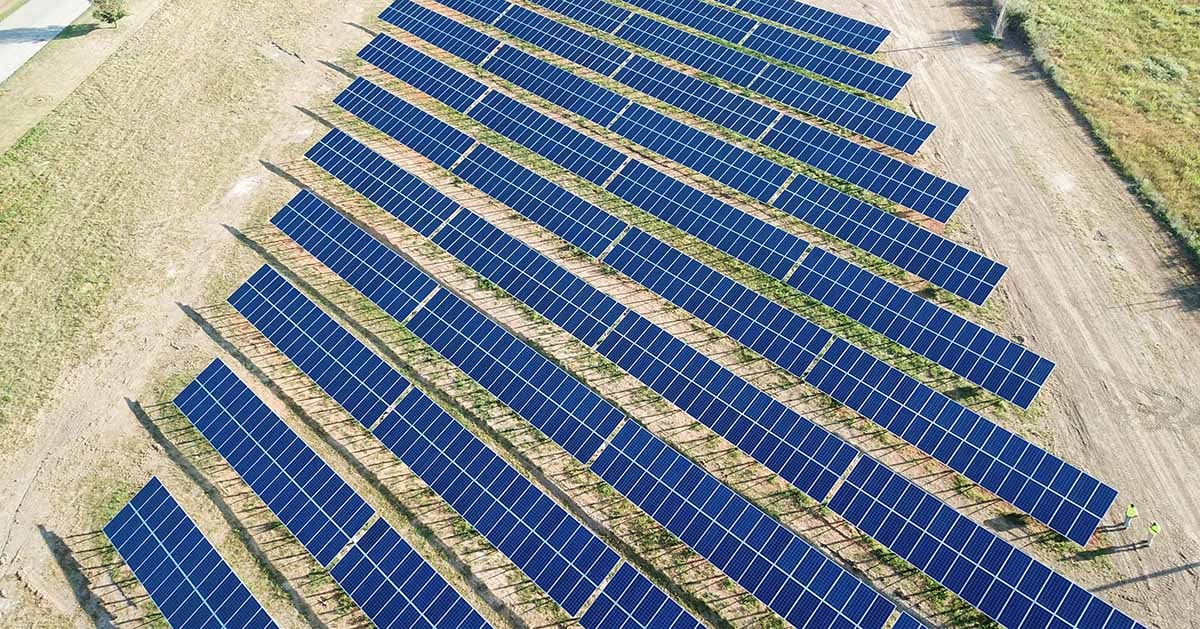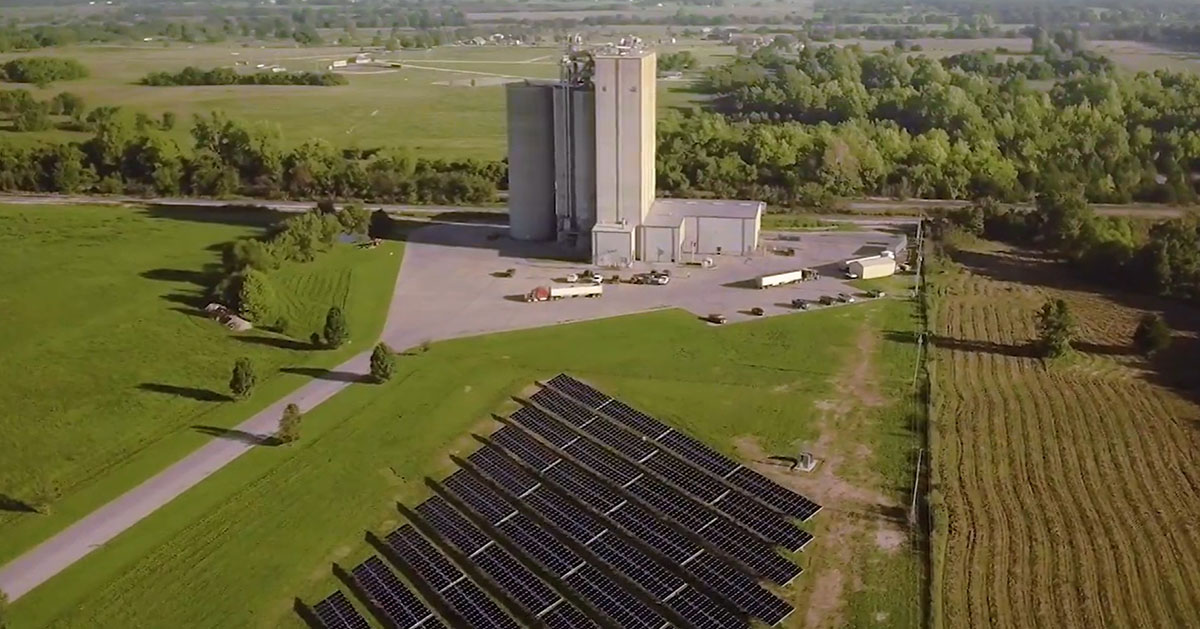Ag producers and rural businesses interested in solar have a unique opportunity to reduce energy costs, promote environmental sustainability, and have a significant portion of their project costs funded.
REAP Grant Funding Provides Greater Access to Solar for Farms and Rural Businesses
For a farm or rural small business, onsite solar generation can provide economic and brand-building benefits. In additon to creating immediate and long-term energy cost savings, solar minimizes the risks of rising utility costs, and demonstrates a commitment to sustainability to customers, employees and the community.
REAP grants from the USDA are available to rural small businesses and agricultural producers nationwide and can cover up to 50% of the total cost of a solar installation, with a maximum grant value of $1 million. Guaranteed federal loans are also available within the program to assist applicants with their remaining project costs.
REAP Grants for Solar: Frequently Asked Questions
1. Who is eligible for a REAP grant?
Applicants must be one of the following:
-
- An agricultural producer. Ag producers can be located in a rural or non-rural area, but must obtain at least 50% of their gross income from agricultural operations.
-
- A rural small business. A business must be located in an area with less than 50,000 residents and fall within a revenue threshold for its industry. Simple lookup tools exist for both criteria:
- Rural: Use the USDA’s site to verify a specific address: https://bit.ly/3wl1fzw
- Small: Use the SBA (Small Business Administration) site to verify size: https://bit.ly/3Wvvrme or reference the SBA industry size table, organized by NAICS code: https://shorturl.at/3HP3V
Some examples of rural small businesses include private for-profit entities, cooperatives, electric utilities, and tribal entities.
- A rural small business. A business must be located in an area with less than 50,000 residents and fall within a revenue threshold for its industry. Simple lookup tools exist for both criteria:
2. Can REAP grants be awarded for residential or non-profit solar projects?
No. There is no benefit available to homeowners nor non-profit entities through REAP. A commercial solar project that shares an electric meter with a residential property would be subject to additional restrictions.
3. Can a loan be applied for at the same time as a grant?
Yes. Guaranteed loans are available through the program. Organizations can indicate how much funding assistance they desire for the project, with a maximum financial value (grant plus loan) not to exceed 75% of total eligible project costs.
4. Can I apply for more than one grant?
Entities can only compete for one award per year.
5. How and when are grant applications evaluated?
Set-aside funds for REAP grants are managed at the state level. Applications received compete against other local projects for funding.
Grant applications are scored on numerous factors. Primary focus areas include:
- Overall environmental benefit of the project
- Quantity of energy generated, replaced, or saved
- The project’s payback period
- Project location and community status: Projects that are located within disadvantaged or distressed communities are eligible for bonus points.
Veteran-owned businesses and other federally-prioritized groups may also qualify for bonus points.

Above: A SunPeak solar installation in rural Missouri.
6. What information must be provided?
Applications must include a detailed project description, expected utility offset, a financial overview, environmental documentation, and basic background information for the entity applying for a grant. Your solar provider can assist with these requirements.
Prior to submitting a grant application, applicants must also create or verify registration in the federal government’s System for Awards Management (SAM): https://sam.gov/content/entity-registration
7. If a grant is awarded, when must the project begin?
Grantees have two years to complete their project.
8. If a grant is awarded, is the project eligible for other financial incentives?
If a REAP grant is awarded, no other federal grant money can be collected, however, the project would remain eligible for federal tax credits and other available financial incentives for solar, which can further reduce the overall project cost for the system owner.
REAP Grants for Solar: Key Dates and Deadlines
The application window for REAP applications opens in July. Application deadlines and grant cycle data is regularly updated on the USDA's website: https://shorturl.at/WZ9Ur
Key Takeaways
REAP grants are a great example of federal financial resources that are available to enhance the ROI of solar. These grants give ag producers and rural small businesses the opportunity to more affordably reduce energy costs and promote environmental sustainability.
SunPeak’s experienced engineers and project developers work with each customer to assess project feasibility, design systems based on specific site characteristics, and provide information on available renewable energy incentives and financing options. This process allows customers to evaluate project options and move forward with solar confidently, knowing they will meet their project goals while achieving a favorable return on investment.

